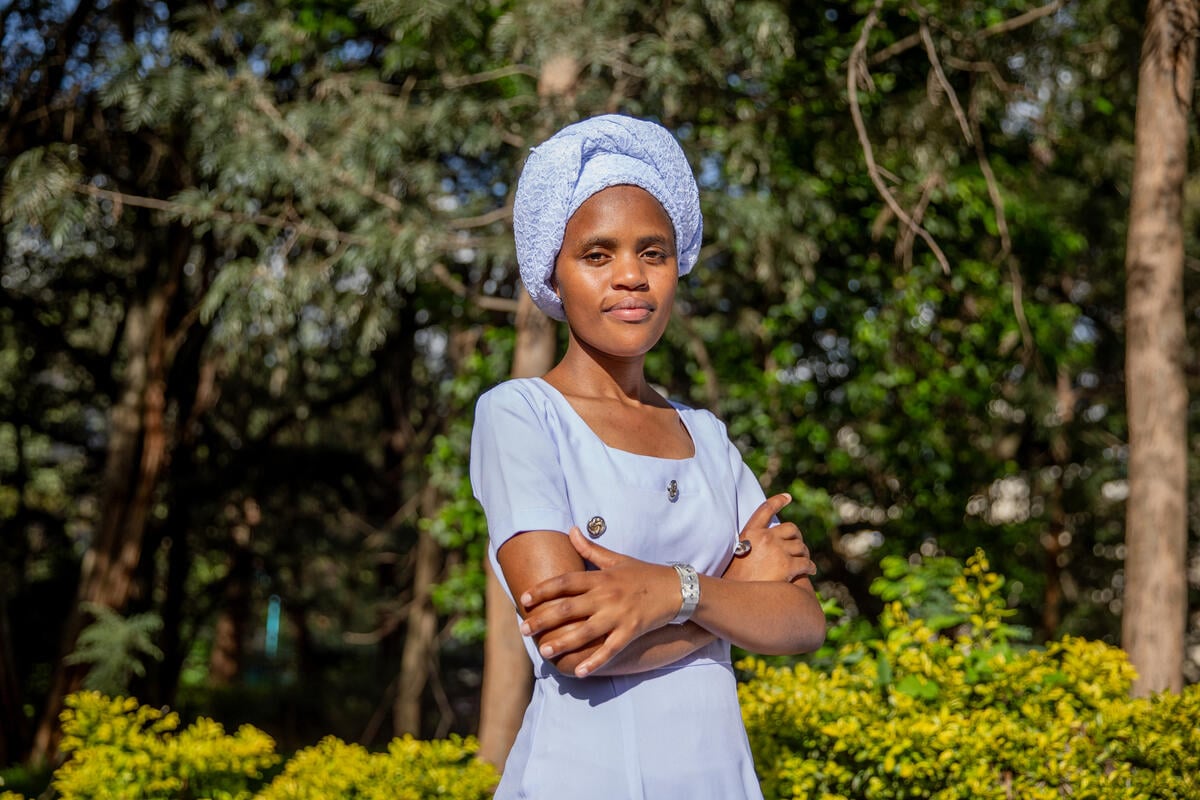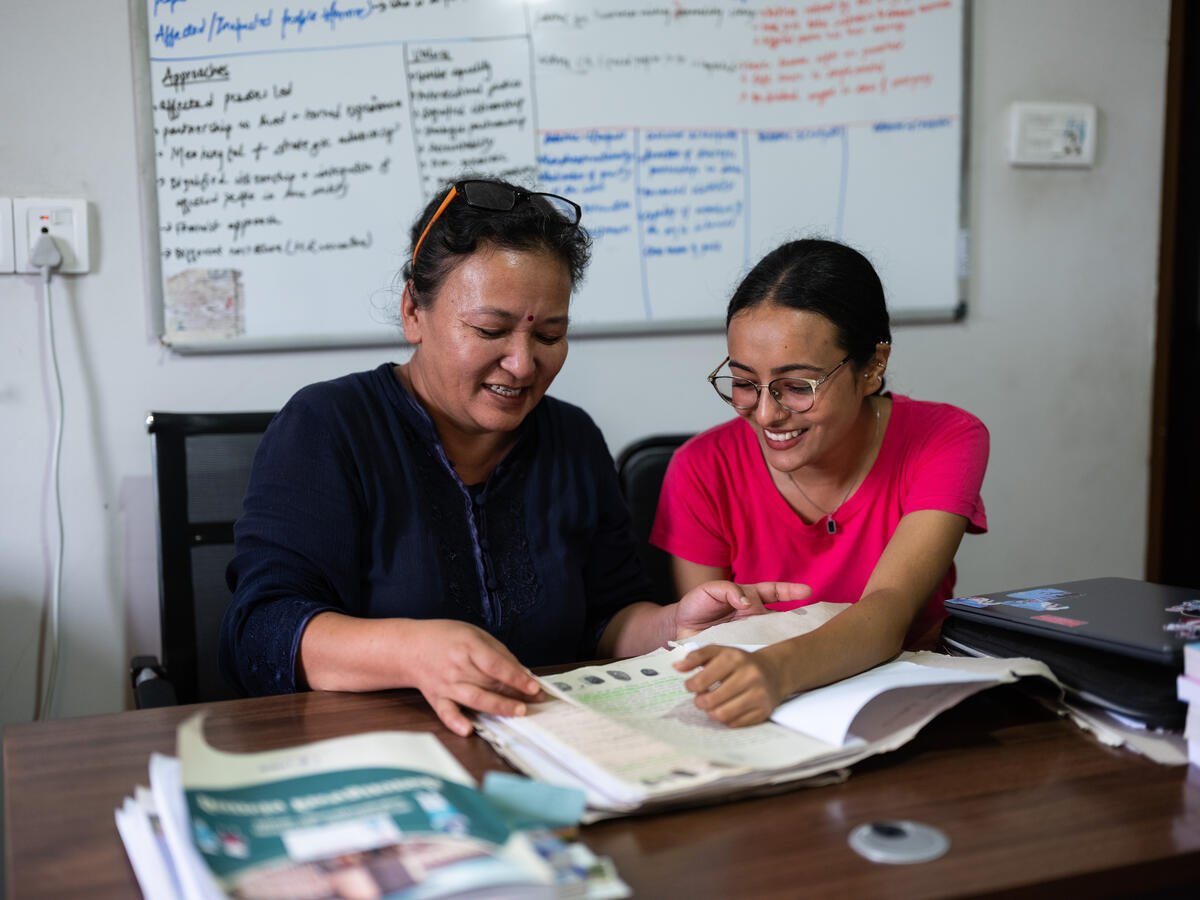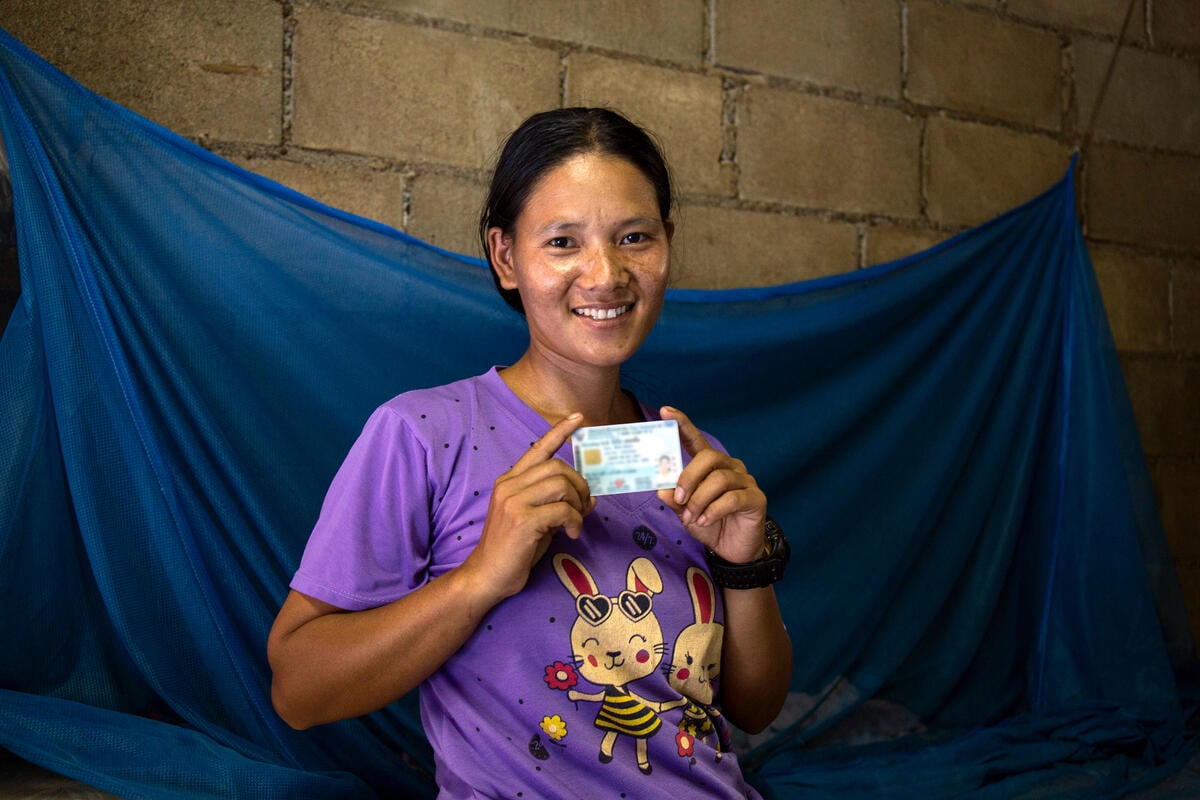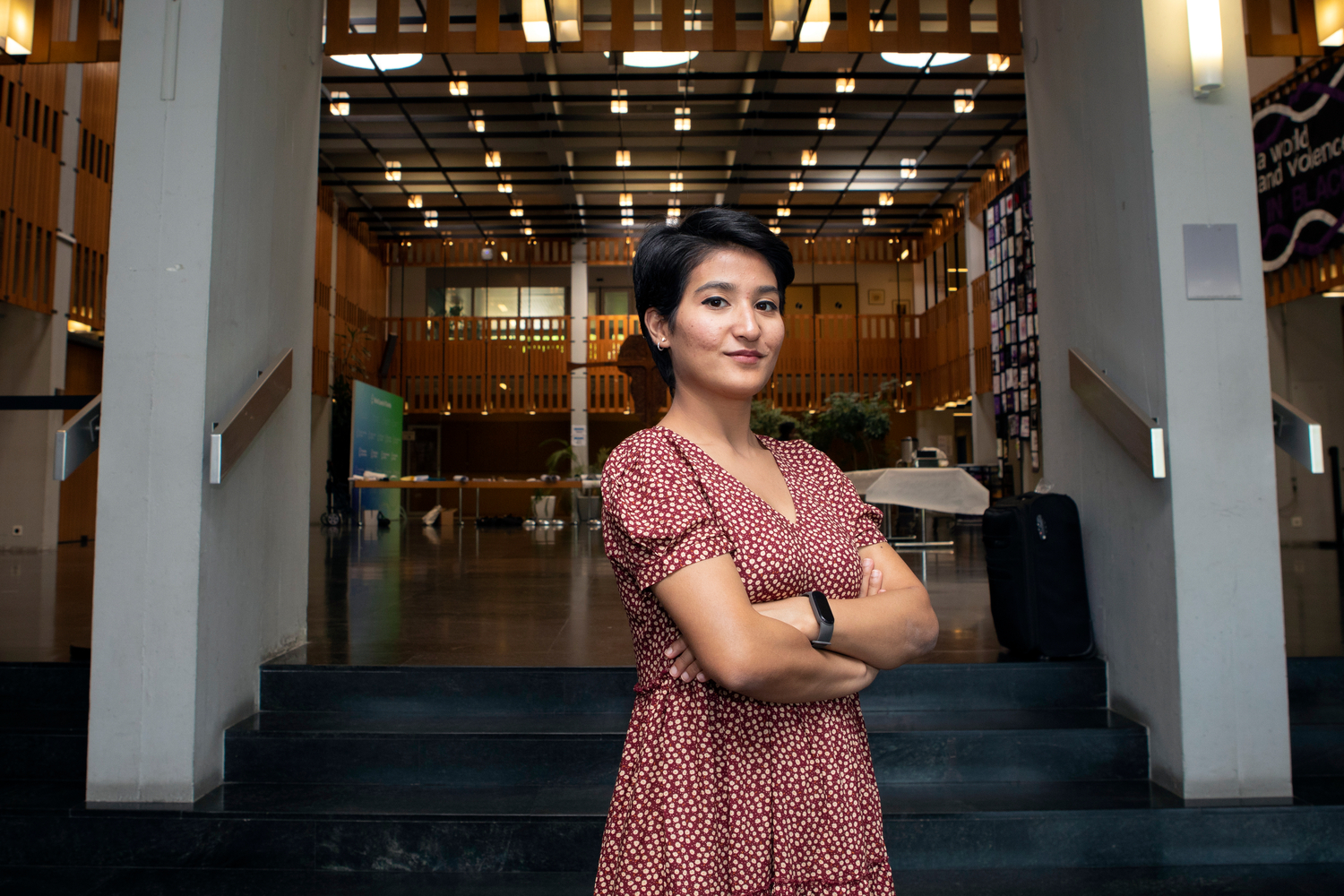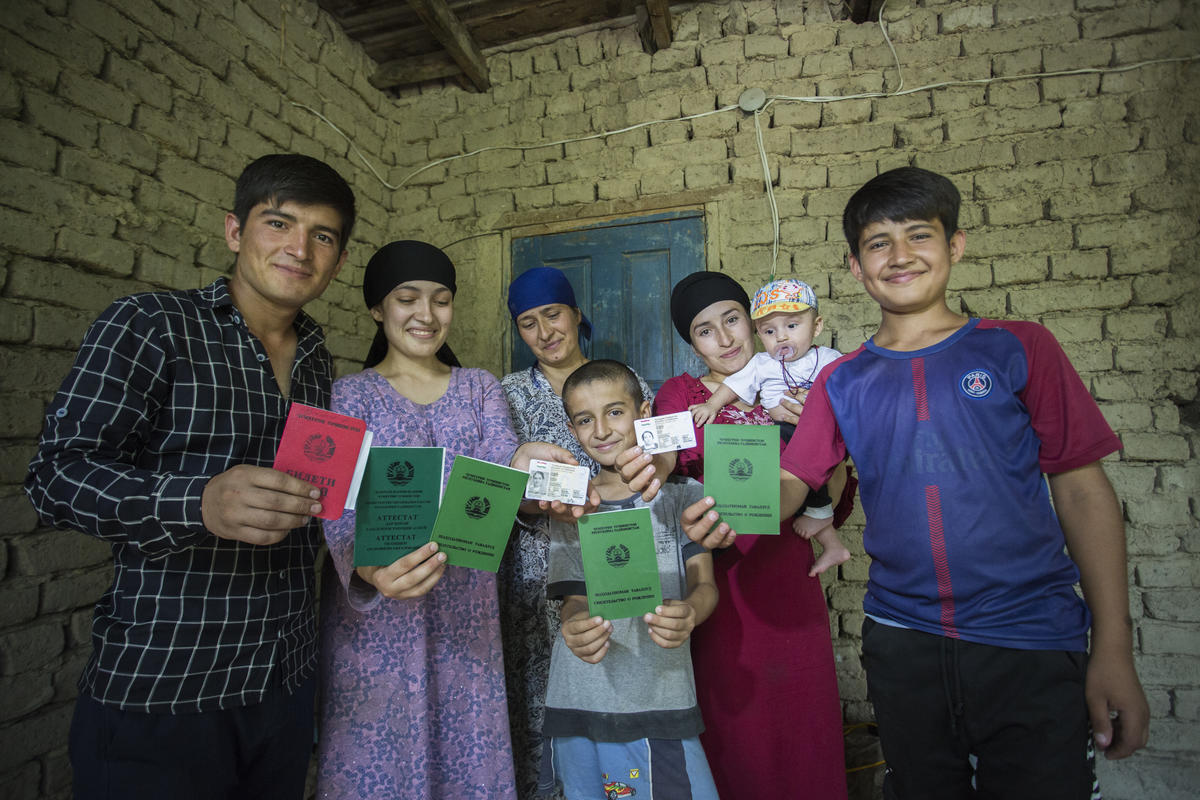Restoration of rights key to Myanmar refugee return, UNHCR's Grandi says
Restoration of rights key to Myanmar refugee return, UNHCR's Grandi says
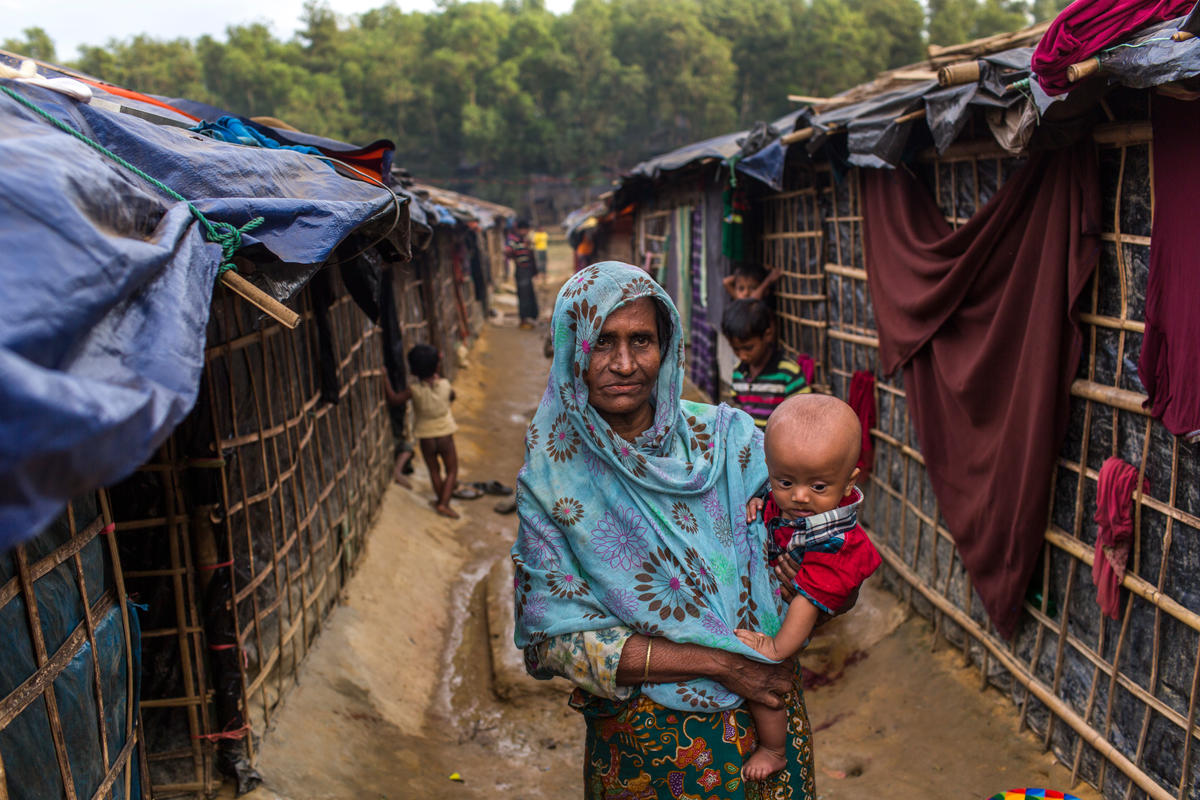
NEW YORK – Restoring rights to hundreds of thousands of Rohingya refugees is key to any plan to allow for their safe return to Myanmar, UN High Commissioner for Refugees Filippo Grandi told the UN Security Council today.
More than 688,000 refugees have fled Myanmar to Bangladesh since late August in a rapid, chaotic outflow driven by violence that follows decades of deep repression and exclusion in their homeland.
“The causes of this crisis originate in Myanmar; and a genuine search for solutions must finally start,” Grandi said in a video address to the Council. “At the heart of it all is the restoration of rights - including the right of refugees to return home - voluntarily, and in safe, dignified conditions.”
The refugee crisis erupted in late August when Myanmar armed forces launched a security operation in the north of Rakhine State, driving thousands of children, women and men to flee over the border to Bangladesh in search of safety.
Nearly six months later, that outflow is now dramatically reduced - but still continues, Grandi said. He warned that “conditions in Myanmar are not yet conducive” to their voluntary repatriation.
“The causes of this crisis originate in Myanmar, and a genuine search for solutions must finally start.”
“The causes of their flight have not been addressed, and we have yet to see substantive progress on addressing the exclusion and denial of rights that has deepened over the last decades, rooted in their lack of citizenship,” he continued.
Grandi was speaking from Jordan where he was on mission. He welcomed the dialogue between the Government of Bangladesh and the Government of the Union of Myanmar on the voluntary repatriation of refugees, and the commitment to international standards on voluntary, safe and dignified return set out in a recent agreement between the two countries.
In line with UNHCR’s responsibility to help resolve refugee crises, he said the agency had extended an offer of support to both governments, including to participate in the joint working group established to work on its implementation, in line with the UN Refugee Agency’s mandate. That offer remains open.
Grandi stressed that UNHCR has not had access to affected areas of the northern part of Rakhine State since August 2017, and that access in central Rakhine has also been curtailed. Such presence and access remains essential to monitor protection conditions, provide independent information to refugees, and accompany returns as and when they take place.
Grandi noted there are also around 120,000 internally displaced people currently in the central part of Rakhine State, mainly Rohingya driven from their homes by inter-communal violence, who are now in their sixth year of confined encampment. He highlighted that finding solutions for them would also help build confidence among refugees.
“Allowing internally displaced people to return home, and fast-tracking confirmation of their citizenship would send a strong signal to refugees."
“Granting freedom of movement, allowing internally displaced people to return home, and fast-tracking confirmation of their citizenship would send a strong signal to refugees in Bangladesh that Myanmar is genuinely committed to taking responsibility for their protection and well-being, and to pursuing lasting solutions.”
In his briefing, Grandi commended the Government and people of Bangladesh for continuing to receive refugees and provide them with protection and support in the Kutupalong area in Cox’s Bazar - which is now the largest refugee settlement in the world.
He said the Government, together with highly-skilled national and local organizations, and the United Nations and other humanitarian agencies, with solid donor support, has mounted an impressive response, although conditions there remain overcrowded and precarious for many.
Disease outbreaks – including diphtheria – remain a significant risk at the sprawling settlements. Meanwhile, preparations underway ahead of the monsoon rains expected in March are a “race against time” to avert another emergency.
More than 100,000 refugees are currently located in flood or landslide prone areas, Grandi said, while tens of thousands of particularly vulnerable refugees need to be relocated as their lives are “at grave risk.”
“The Government is steering a massive emergency preparedness effort, but international support must be stepped up to avert a catastrophe.”
See also: Rohingya say rights guarantees key to Myanmar return

